
Audemars Piguet Reaffirms Its Mastery of Openworking With These Two New Royal Oaks
The Royal Oak Double Balance Wheel Openworked ref. 15467 and ref.15416 are rooted in history and attest to Audemars Piguet’s ambitions for the future
In May, Audemars Piguet debuted not one, but two new Royal Oak Double Balance Wheel Openworked watches designed for those with smaller wrists (37mm). One is a dazzling 18k pink gold edition with an eye-catching inner-bezel ring in vibrant purple – ref.15467OR.OO.1256OR.02. And just when we thought it couldn't get any better, the Le Brassus-based Manufacture surprised us again by dropping a sleek 41mm version in black ceramic with a striking pink gold movement – ref.15416CE.OO.1225CE.01 – alongside two more iterations.
How do these two compare to each other? Let’s find out.

The Origins
The Royal Oak has become a staple in the world of horology, with its innovative design that has left an indelible mark on pop culture and in the hearts of many collectors. While some may debate its place among other influential designs, the Royal Oak stands boldly at the top. Its distinct octagonal bezel, sleek case structure, expertly crafted bracelet, visible screws, and crown, all come together to create a transcendent watch unlike any other.

In the dawn of the 1970s, Audemars Piguet watchmakers, spurred on by their mentors, made a bold decision to revive the lost art of openworking that had faded into obscurity since the 1950s. This led to the establishment of the brand's first dedicated workshop for the technique. Georges Golay, then Director of Audemars Piguet, challenged these artisans to create 100 openworked versions of the Calibre 2120, a feat that required 150 hours to complete each movement. The inaugural timepiece (Model 5442) was delivered in November 1973, followed by thirty more between then and 1976. In 1978, the Manufacture produced 300 openworked watches powered by Calibre 2120. By 1984, the workshop was employing a team of twelve master craftsmen.

The early days of the Royal Oak collection kept its inner workings secret. However, with the rise of quartz technology, the watchmaking world shifted its focus to showcasing the beauty and craftsmanship of mechanical movements. Openworking emerged in 1981 as a pendant for the Royal Oak (Model 5710BA), followed by the Model 25636 in 1986 featuring the ultra-thin perpetual calendar Calibre 2120/2800. However, it wasn't until the 1990s, marked by Royal Oak models in various shapes and sizes, that this delicate art truly found its place in the collection with its debut in the iconic "Jumbo" line in 1992.

In 2022, Audemars Piguet first made waves with the Royal Oak Double Balance Wheel Openworked in black ceramic, which, in many ways, signalled its foray into the new age. The watch was cast in full black, save for the double balance wheel itself, markers and hands, which were made from pink gold. A natural successor of this model not is the ref.15416CE.OO.1225CE.01 with its entire movement in pink gold.
Case and Dial
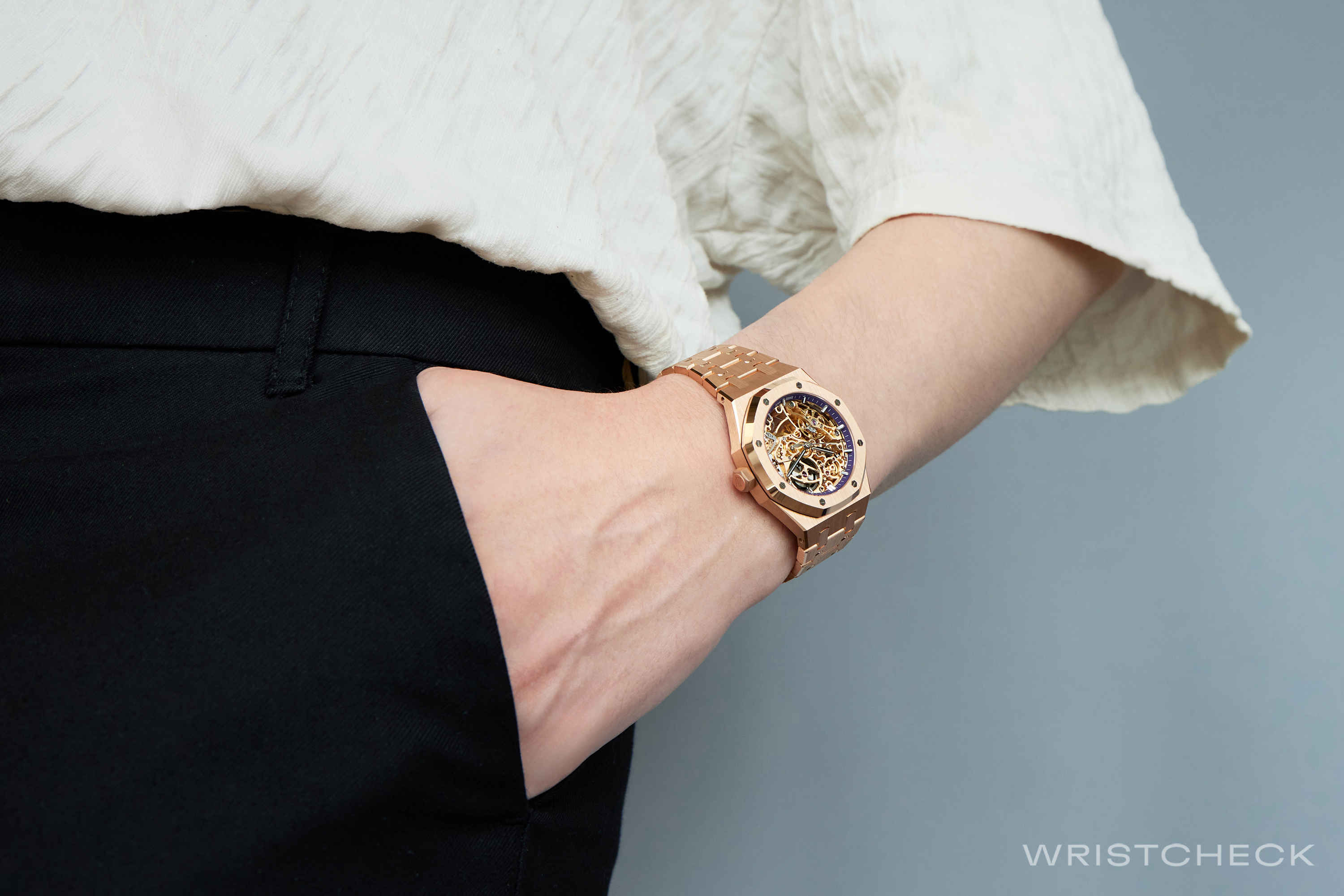
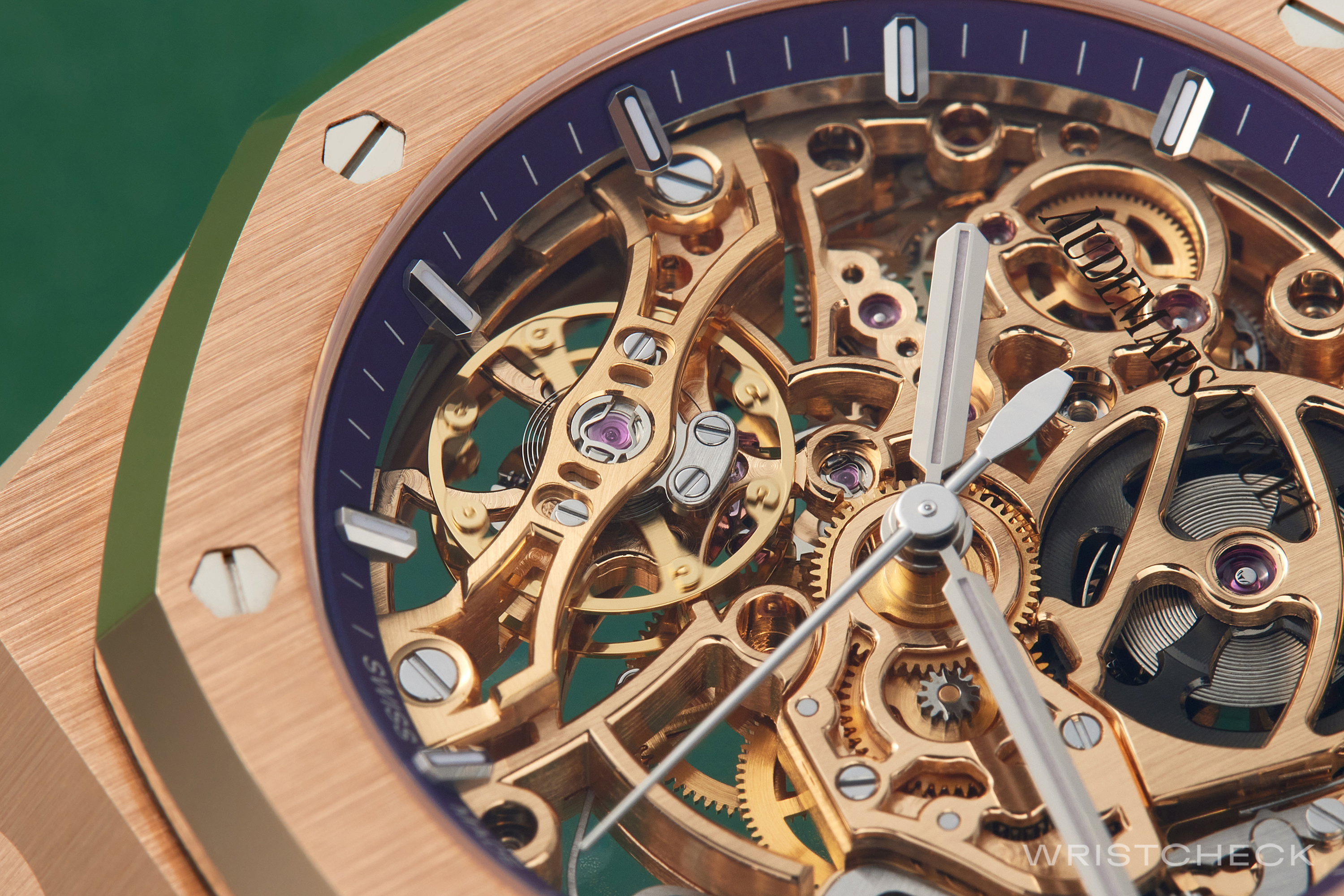
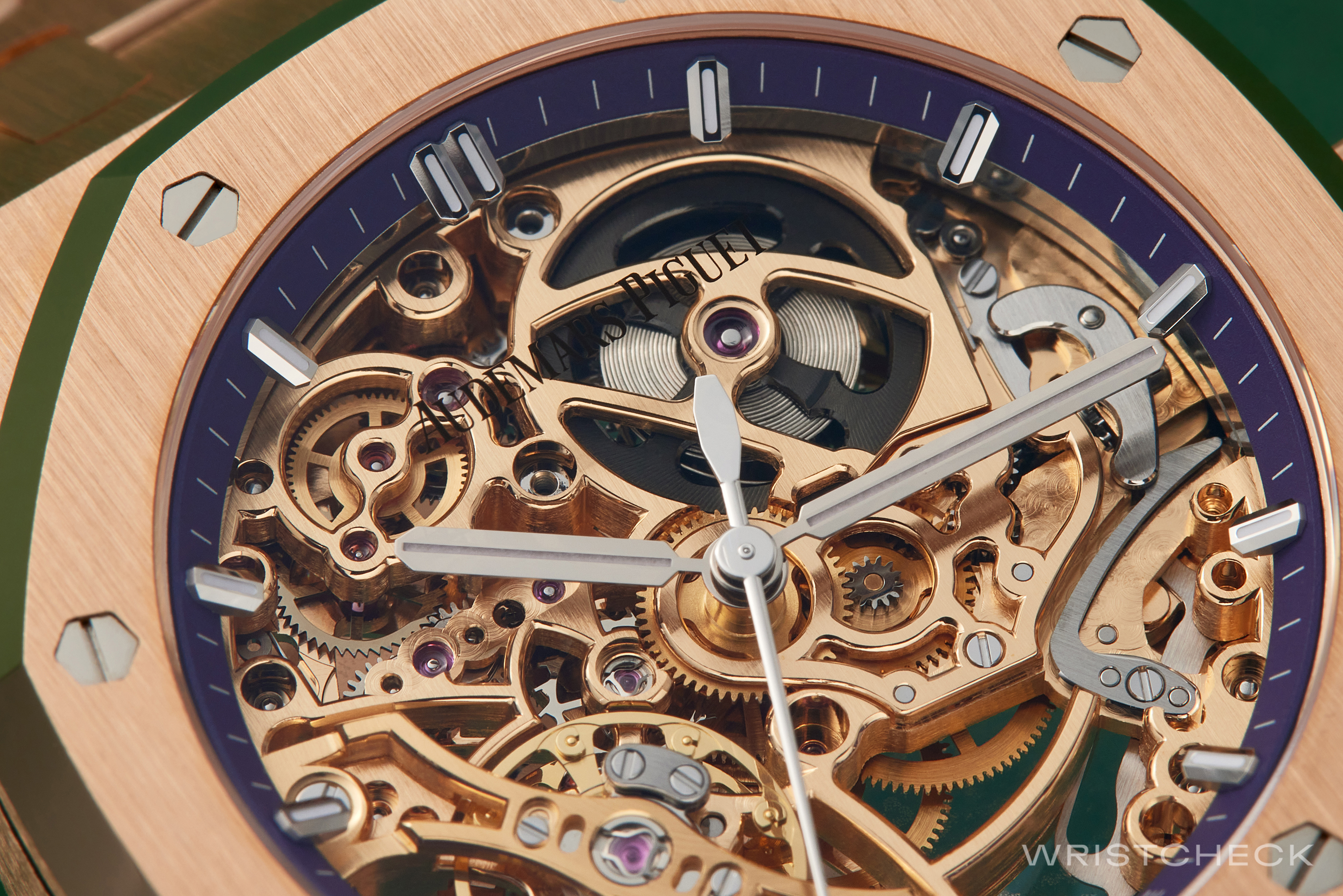
The 37 mm Royal Oak Double Balance Wheel Openworked model boasts a luxurious 18k pink gold case and bracelet. The delicate interplay of polished and satin-brushed surfaces creates an alluring contrast that highlights the iconic design of the Royal Oak. The warm hue of the pink gold is mirrored in the movement's exquisite finishes, while white gold hands and hour-markers add a touch of sophistication. A pop of bold purple on the inner bezel adds a modern twist to this classic watch.
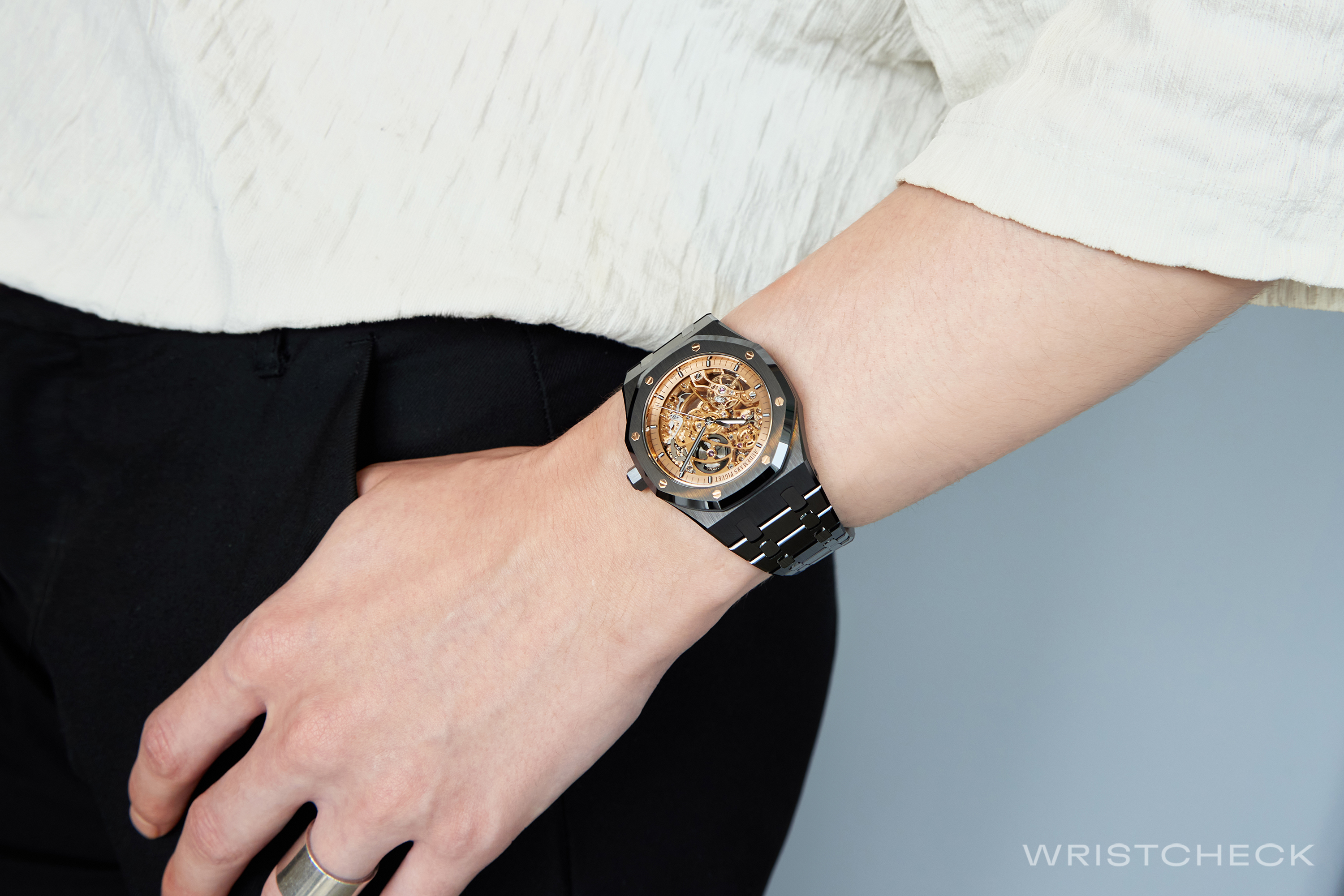
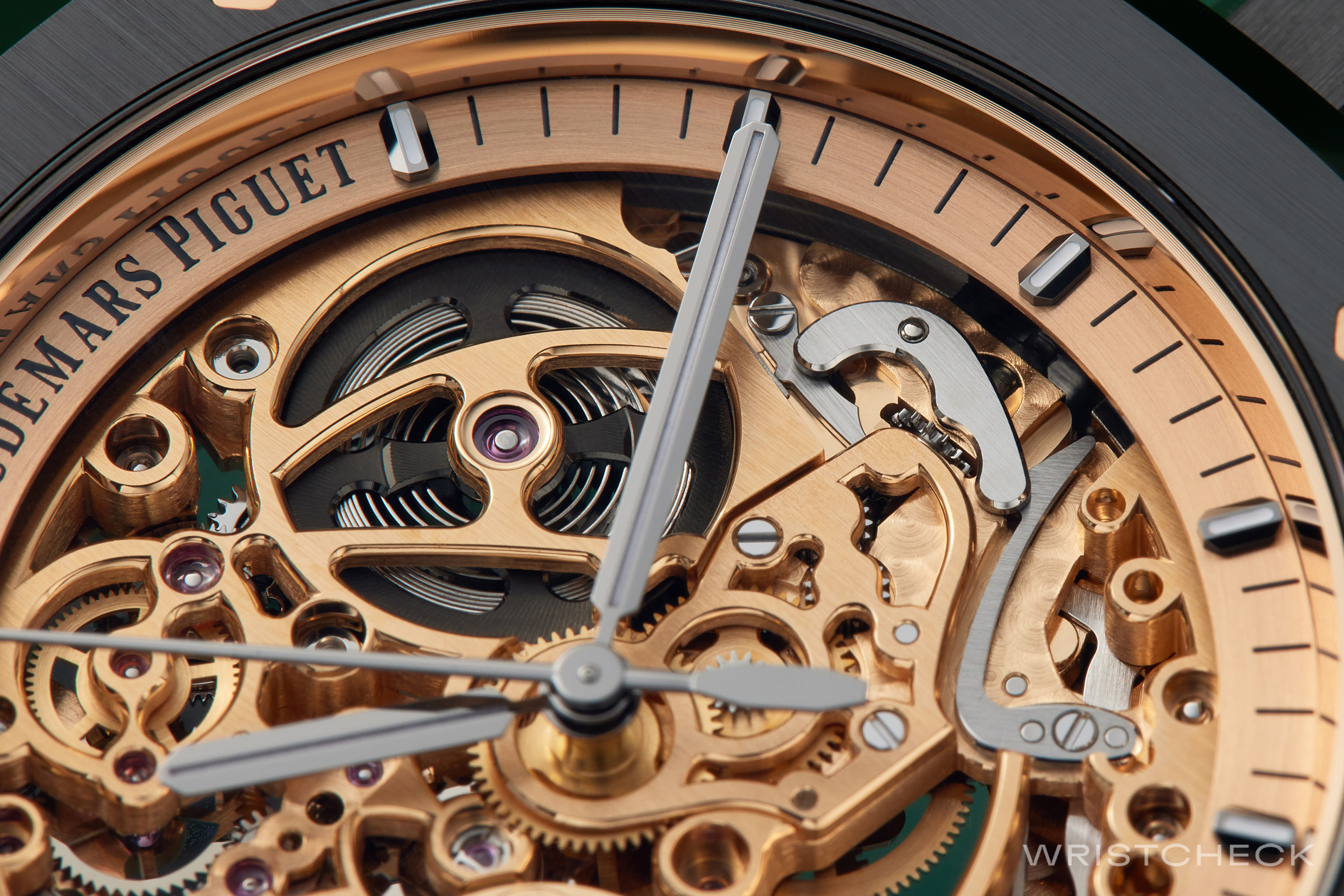
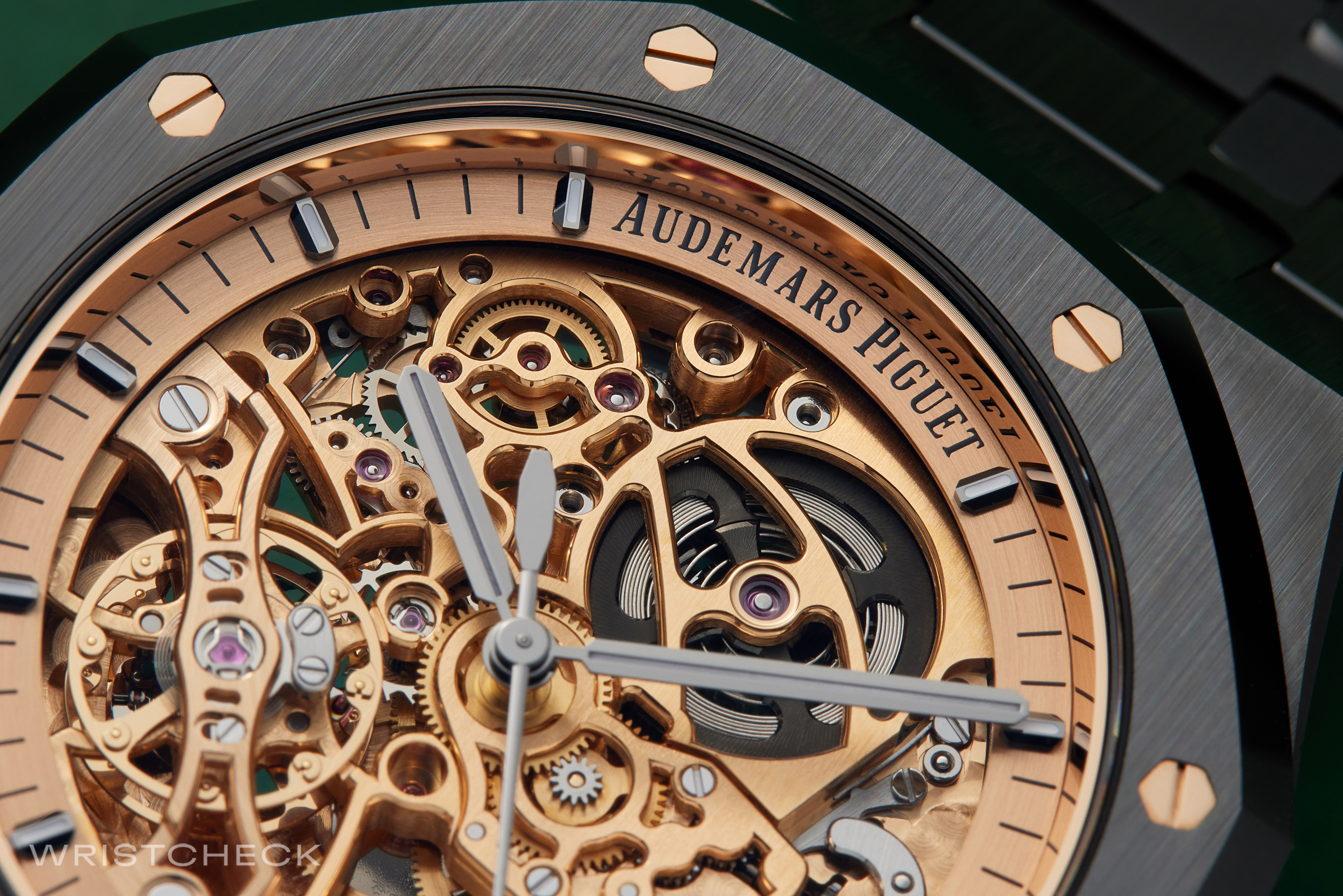
The 41mm version in sleek black ceramic presents a striking balance of light and dark. The movement and inner bezel of the black ceramic model feature a bold pop of pink gold, showcasing the meticulous craftsmanship of its parts. The bezel is adorned with eight hexagonal screws in matching pink gold, perfectly complementing the warm tones of the movement. Adding to the dramatic contrast, the hour markers and hands on this model are coated in black rhodium. As a final touch, the titanium and sapphire caseback proudly displays the engraving "Limited Edition of 150 Pieces".
The Movement
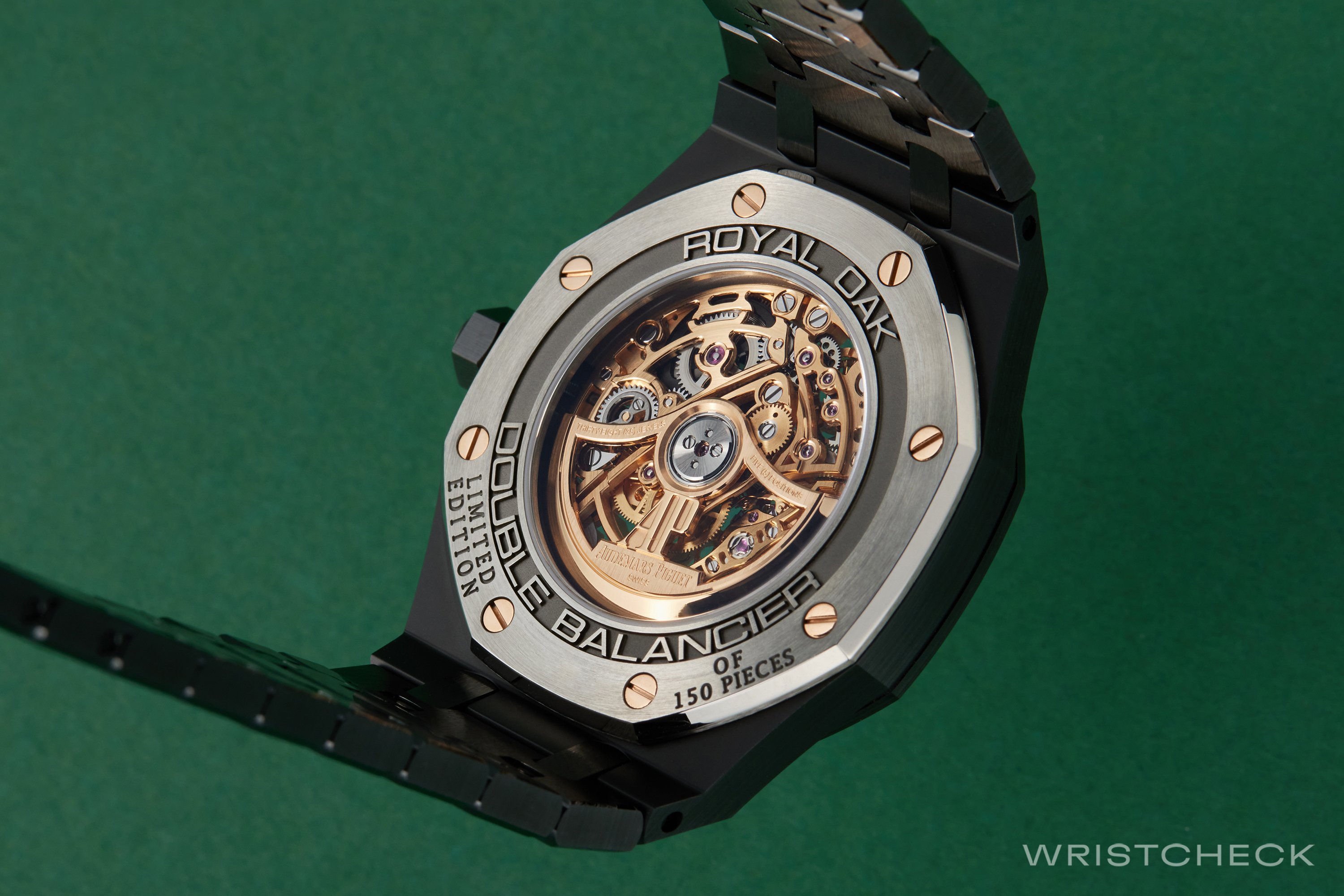
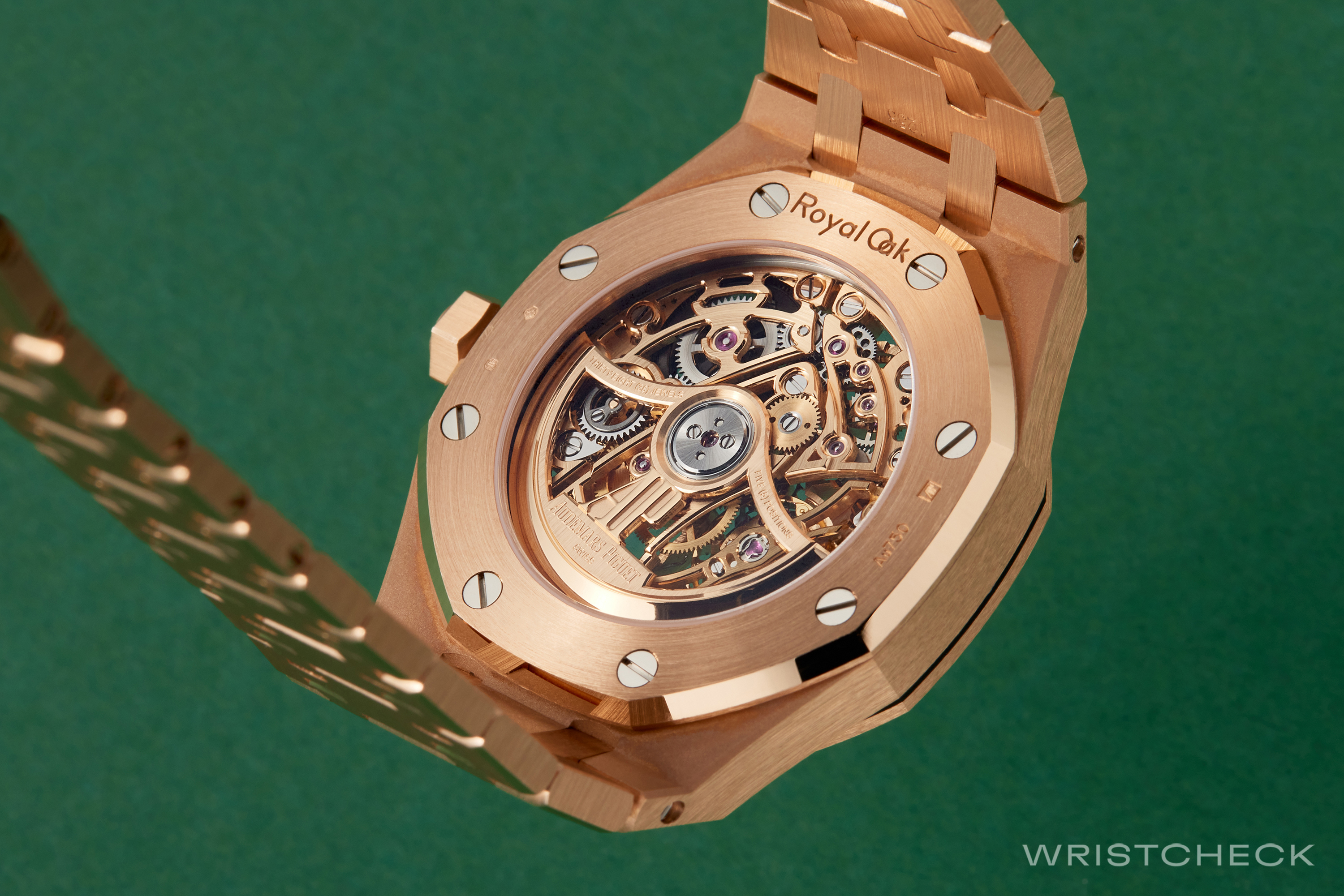
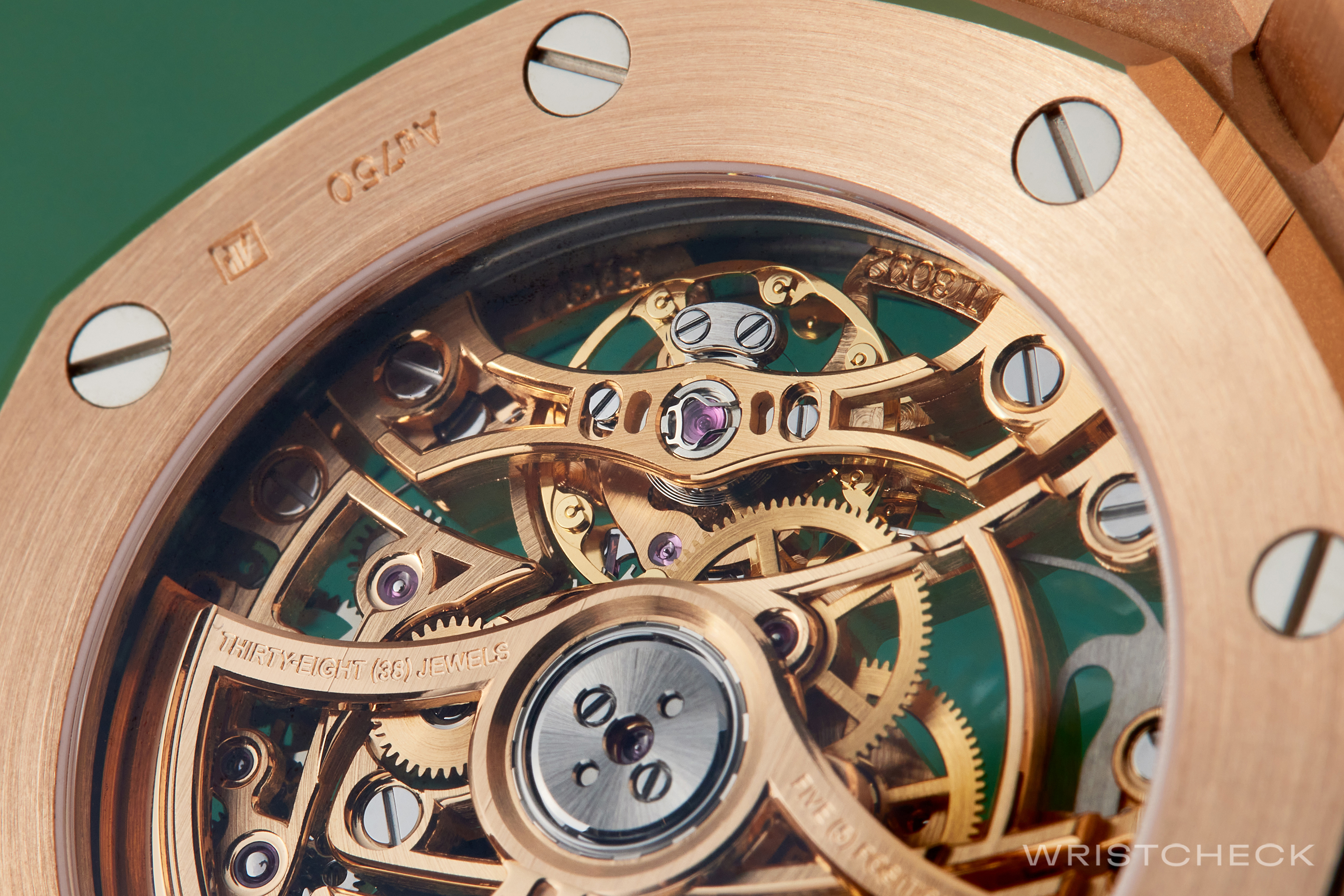
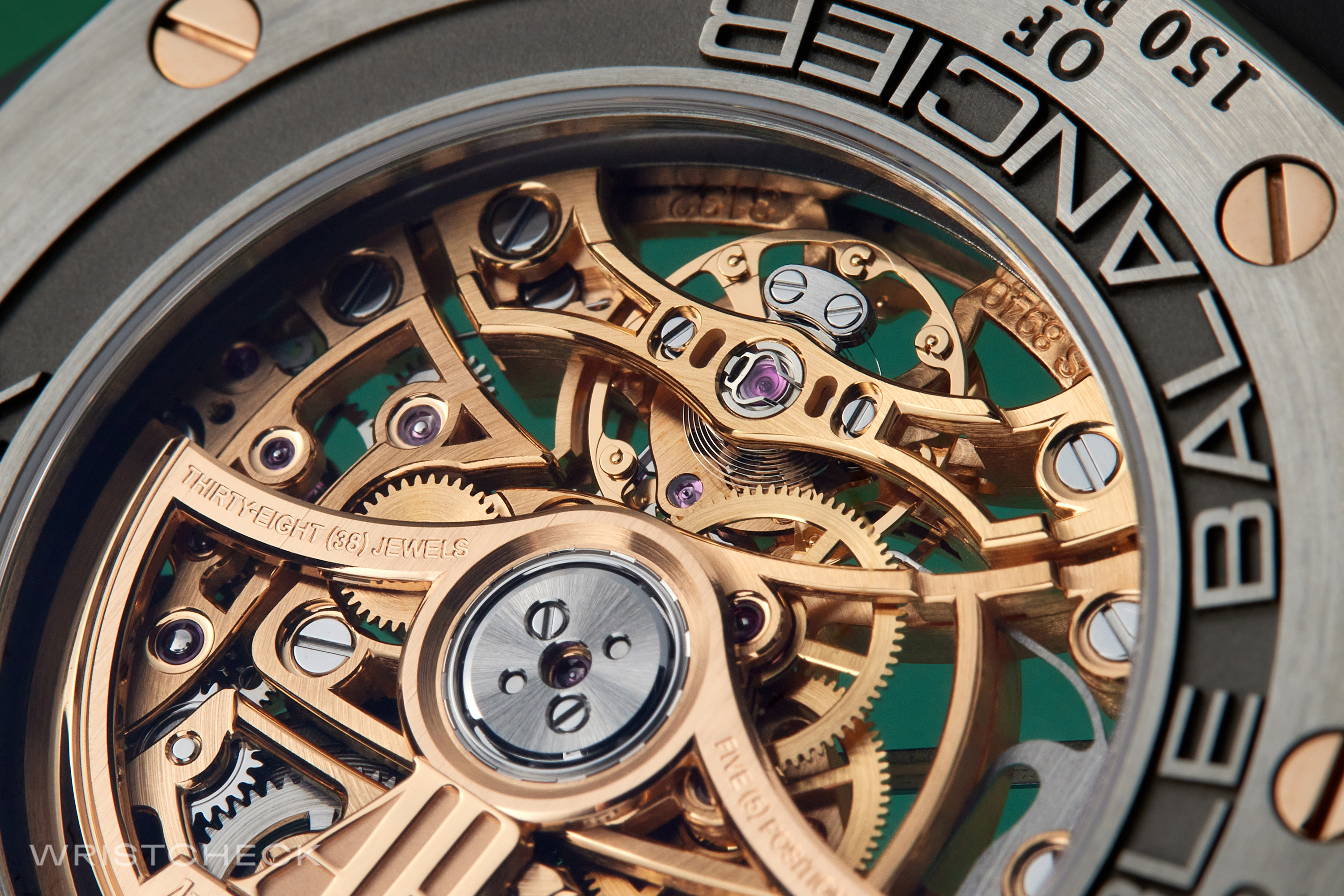
Both ref. 15467 and ref. 15416 are powered by the Caliber 3132, a selfwinding movement equipped with a revolutionary double balance wheel mechanism developed by Audemars Piguet in 2016. This innovation ensures precision and stability of timekeeping thanks to the two balance wheels and hairsprings working in synchrony on the same axis. The mesmerizing beating heart of the watch is visible from both sides of its case, thanks to the double balance wheel design. The openworked bridges showcase some of the intricate components of the gear train, each one meticulously crafted through cutting-edge CNC machining techniques and then finished by hand using traditional methods. The immaculate polished V-angles are a testament to the skilled craftsmanship that went into creating every detail of this masterpiece. And as a final touch, the openworked oscillating weight matches perfectly with the case color, completing the striking contrast of this new reference with utmost harmony.
